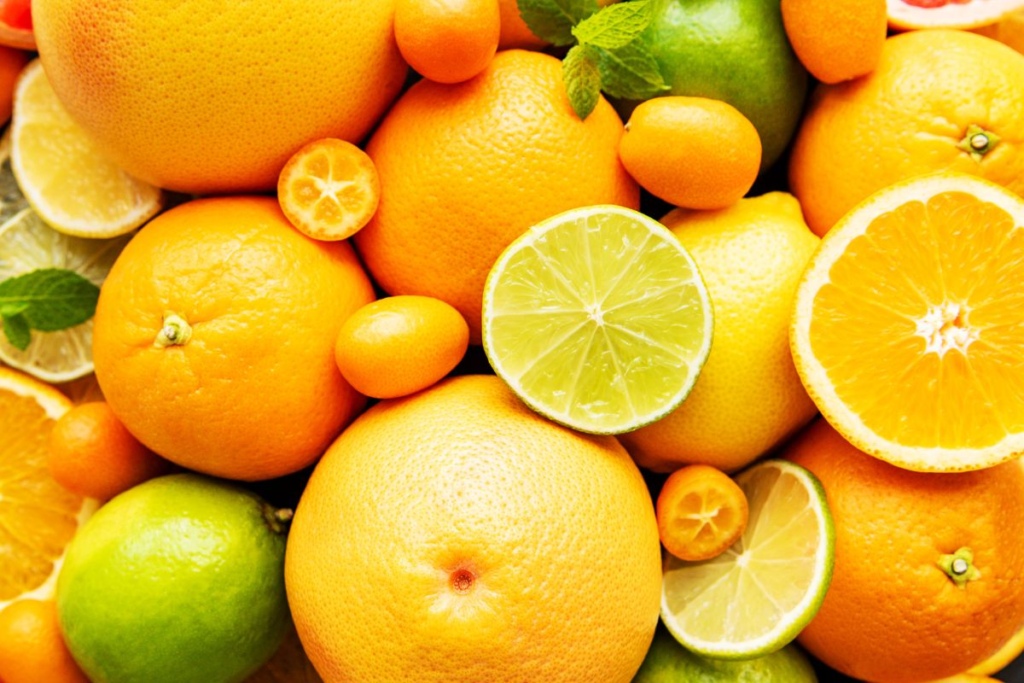Good vaginal health and pH balance are essential for maintaining overall physical and mental well-being. Unfortunately, many people are not aware of the foods that can help maintain a healthy environment for their vaginas.

This article will provide an overview of the best foods to eat to keep your vagina healthy and in balance.
We’ll discuss how these foods can improve vaginal health, prevent infections, and support pH balance to keep your vagina healthy and happy.
What Are The Best Foods For Vaginal Health And Overall PH Balance?
The signs of an unbalanced pH level can be anything from changes in odor to discharge amount, so it is important to keep an eye out for these things – and if you do notice any changes, speak to your doctor right away, as they will be able to help diagnose what is causing the imbalance.
Possible causes could include anything from menstruation and sex to certain kinds of hygiene products or medications, with each being addressed differently.
Taking prompt action on any issues before they become bigger problems is going to be extremely beneficial in the long run when it comes to maintaining optimal genital health.
Cranberry Juice
Cranberry juice has long been touted as a home treatment for urinary tract infections (UTIs).
Cranberry juice has been shown to have anti-inflammatory and anti-adherence properties, making it difficult for bacteria to take hold in the urinary tract.
Cranberry juice contains phenolic compounds, flavonoids, and benzoic acids which can help to prevent bacteria from adhering to the walls of the bladder.
Many doctors recommend drinking unsweetened cranberry juice or opting for concentrated extract capsules, as it is easier to control the amount consumed in order to avoid consuming too much sugar.
Drinking unrefined cranberry juice may help aid the recurrence of recent UTI issues, making it an easy fix for those looking to take matters into their own hands.
Sweet Potato
Sweet potatoes have long been hailed as a super-food due to their nutrient-rich profile. They contain high amounts of vitamin A and beta-carotene, both of which are essential for maintaining healthy bacteria levels in the vagina.
This is especially helpful for women who suffer from bacterial vaginosis (BV). Vitamin A helps keep BV at bay by controlling the growth of bad bacteria, while beta-carotene can promote the growth of good bacteria.
Additionally, sweet potatoes are rich in fiber which has been linked to regulating insulin levels, thus having a positive effect on women with Polycystic Ovary Syndrome (PCOS).
By keeping blood sugar levels balanced, PCOS symptoms such as heavy or missing periods, facial hair, weight gain, and infertility can be improved.
Citrus Fruits

Citrus fruits, such as oranges, lemons, and limes, are rich in vitamin C which helps to boost the immune system and promote healthy bacteria levels in the vagina.
Vitamin C also helps to reduce inflammation that is often associated with infections.
The antioxidant-rich phytonutrients found in fruits such as apples, oranges, pears, blueberries, and strawberries are beneficial for maintaining optimal feminine health.
Vitamin C helps to fight infection, reduce inflammation and protect the immune system, while zinc boosts immunity. Folic acid strengthens uterine walls, while iron keeps oxygen levels balanced throughout the body.
These minerals are essential for ensuring reproductive organ health, so consuming them on a regular basis is key for maintaining good vaginal hygiene.
Eating various fresh or frozen fruit will provide your body with ample nutrition for better overall well-being – both inside and out!
Soy
Soy has been gaining traction as an all-natural health supplement that promotes vaginal health.
Soybeans contain isoflavones – plant-based compounds with antioxidant, and anti-inflammatory properties – that can work together to help women with decreased estrogen levels.
Soy products have become increasingly popular as a source of protein, and many people choose them for health reasons.
But did you know that soy can also be beneficial for your vaginal health? Soy contains phytoestrogens, which act similarly to estrogen in the body.
For many people with reduced estrogen levels due to menopause or certain medications, soy can help reduce symptoms such as vaginal dryness.
Leafy Greens
Dark leafy greens are full of essential vitamins and minerals, including folate and iron, which can help balance hormones and improve overall health.
They are also high in antioxidants, which can fight free radicals that can damage the vaginal wall and contribute to infections.
A healthy diet is key for maintaining good vaginal hygiene and overall feminine health, so incorporating easy fixes like these into your everyday routine will help to improve your overall well-being.
The good news is that there’s an array of leafy greens you can incorporate into your daily diet in order to promote vaginal health!
Leafy green vegetables are packed with gut-benefiting probiotics and prebiotics – which help good bacteria thrive – so loading up on cabbage, spinach, kale, Swiss chard, and lettuce will help improve gut health.
Final Thoughts
When it comes to vaginal health, there are a variety of foods that can help promote optimal well-being. And these foods can be a lifesaver for someone who struggles with vaginal health issues or issues revolving around their PH balance.
Cranberry juice, citrus fruits, soy products, and leafy greens are all excellent choices for maintaining a healthy pH balance and fighting off infections.
Incorporating these foods into your everyday routine will help ensure that your vagina stays in tip-top shape!
Frequently Asked Questions
Which Foods Should You Be Limiting To Help With Vaginal Health?
Maintaining vaginal health is an important priority for many women. While there is no one-size-fits-all approach to this, following a diet that limits foods with high sugar and fat content can be beneficial.
Regularly eating highly processed foods, such as red meat, fried potatoes, refined grains, and organ meats, can increase the chances of developing bacterial vaginosis (BV).
Foods with a high glycemic index – white bread, bagels, and processed grains such as sugary cereals, instant oatmeal, and snack foods – may also contribute to BV risk.
Why Should You Be Taking Care Of Your Vaginal Health?
Maintaining your vaginal health is essential for protecting your overall health and well-being. Taking a few simple steps every day can help to keep your vagina healthy and functioning properly.
It’s important to practice good hygiene which means washing the external vagina with mild soap and water, using gentle detergents on underwear, and wearing loose cotton clothes that allow airflow in the area.




